If you choose to establish relationships with the clients, you need to know their language, their pain points in their language, not in your language. That’s paying attention.
Neen James is the author of Folding TimeTM and Attention PaysTM. She has been named one of the Top 30 Leadership Speakers by Global Guru several years in a row because of her work with companies like Viacom, Comcast, and Virtuoso Travel among others.
Neen has boundless energy, is quick-witted and always offers powerful strategies for prioritizing focus in what matters most — all so you can pay more attention, create more significant moments and increase productivity at work and home.
Whether presenting in person or virtually, Neen is the kind of speaker that engages, educates, entertains, and delivers the real-world solutions that apply in your organization, your home, and your community. She also provides one-on-one consulting in a variety of leadership topics and loves serving her audiences.
“I went from this corner office with Sydney Harbor as my view and a car space, an expense account, and all the trappings at the time that were the perceived success, to sitting in my pajamas in the second bedroom in my Sydney apartment going, well, what do I do now?”
[00:00:00] Mike Ganino: One of the things that happen so often for speakers and entrepreneurs and coaches, people who are responsible for getting their ideas out into the world and selling those ideas, is that we get really stuck simply on the delivery of the idea. What's the course going to look like? What's the speech look like? How should it be written? How should I deliver it? When should I move on stage? When should I do this? When should I do that?
[00:00:29] Mike Ganino: We spend a lot of time working on our craft, which makes sense. People are giving us money for that. But there's a whole bunch of other things that go into having a thriving business in 2023. We have to learn about networking, about building relationships. And then also about how to pay attention to the right things, how to look for what your clients are thinking about, how to be in step with them and understand what matters most to them, how to remember to follow up afterwards and stay top of mind.
[00:01:00] Mike Ganino: I'm really fortunate that I, early on in my entrepreneurial journey, got to become friends with my guest today. She's the author of the book, Folding Time and Attention Pays, which I recommend everyone gets Attention Pays. It's literally like chapter by chapter, how to like properly pay attention to the right things in your life. There's a great chapter for public speakers and coaches and entrepreneurs, by the way.
[00:01:25] Mike Ganino: And over the past two decades, Neen James has been advising some of the coolest companies in the world, like Viacom and Comcast and Paramount Pictures. And even the FBI, the Federal Bureau of Investigation. How cool is that?
[00:01:38] Mike Ganino: She brings system-based thinking, implementable strategies, and helps people understand how to create space and freedom for their employees, to avoid distractions and prioritize daily objectives and say “no” to the requests that steal time and focus from their real goals and priorities.
[00:01:55] Mike Ganino: When she's not speaking on stage or advising some of the top executives in the world, you'll probably find her on the back of a Harley Davidson. And as you'll hear in this episode, she's a wee bit small to drive the bike herself. So I'm excited for you to tune in and listen to this episode. I think you're going to walk away with some really interesting ideas for how to rethink what you pay attention to in your business.
[00:02:25] Mike Ganino: One of the things I find really compelling about you is that you have this great understanding of what it's like to work in big, tall office buildings. And I've heard you in the past jokingly describe yourself as a corporate chickie. So where did it all start?
[00:03:11] Neen James: Here's the deal. I grew up in corporate business in Australia. If you're listening to me, I know I do sound like I'm five, but if you add zero, you're getting much closer to my age. Um, so imagine like, and I'm four 10 and a half. This is very important to understand cause I was like this bizarre package, in corporate. So I grew up in corporate business in Australia. I worked in retail, banking, telecommunications, and the oil industry. And you gotta understand, Mike, there's not a lot of chicks in oil right? In Australia. And so I was not normal. Not typical. Didn't fit the mold. You know, there's that crazy saying, you know, don't judge a book by its cover. This book was like, a lot. And so in walks this little thing with the high pitched voice carrying a pink briefcase, and that's pretty much my corporate career. And I loved it. And I think, by the way, I also had the suit with the shoulder pads, wore navy blue, had the black pumps, you know, all that kinda blah, blah, blah.
“Everyone listening has such different situations, but that opportunity to reinvent yourself is something I've done constantly. Because I think we need to stay current and relevant.”
[00:04:14] Neen James: That was required at the time. I remember when I was in banking, I worked in this super fancy bank with marble floors and high ceilings. It was a restored bank, and I had a boss that if you didn't wear pantyhose, you would get marked down on your performance review. So it's, yeah, right? Now you couldn't do that.
[00:04:32] Neen James: These days it's insane. And like now I just refuse to wear pantyhose, no matter how freezing it is outside. I'm like, nope. Because I was always made to wear them. So I think that what's interesting in my corporate life, Mike, is I never fit the mold. But I did try. I really did try to look the part, sound the part, and I loved corporate.
[00:04:54] Neen James: I loved being part of a team. I loved leading teams, but because of my packaging being so little, sounding like I'm so young and leading very large teams in incredibly significant high profile projects. Sometimes people didn't know what to do with me. They didn't – cause literally, I would walk into, especially in the oil industry, I remember walking into this meeting and everyone was like super mad at who – but they didn't know who Neen James was. They just saw a name and they were super mad at this name Neen James. And I remember this man saying to me, and I completely automated something, changed the whole process, upset a lot of people, and uh, and this man was like, “oh, are you here to take the coffee order?”
[00:05:37] Mike Ganino: Oh no.
[00:05:38] Neen James: I just smiled my sweetest smile and I said, “Sir, while I'd be delighted to get you coffee, you may wanna sit down because I'm about to start the meeting. Hi, my name's Neen James.”
[00:05:47] Neen James: And like, it was like that moment where I was like, “sit yourself down.” Like, I got this. And so I found myself in my career, quite often, uh, being able to – regardless of the packaging, you know, judging a book by its cover, that prejudice that people have about the way that you look or sound. That I have been able to achieve some phenomenal things, uh, despite the packaging. Despite what I look like and I loved corporate. My, my affection around being a corporate chick,
[00:06:17] Neen James: I think what it does is it takes the formality out of corporate. You know, I see people with these big super fancy titles and you know, that means a lot to them and that's great. But believe me, early in my career, Mike, I wanted the title. I wanted the corner office. I wanted an expense account. I wanted a secretary.
[00:06:32] Neen James: That's what I used to call them back then. Um, I wanted all those things and got it and it was great. But then when I got it I was like, huh, that's it?
[00:06:41] Mike Ganino: Hmm.
[00:06:41] Neen James: It's fascinating. Yeah. So I had a great time in corporate. Yeah, definitely a corporate chicky.
[00:06:45] Mike Ganino: And what was that moment when you said, “Hmm, is that it?” What was next? What happened after that?
[00:06:50] Neen James: I had always aspired to be a general manager. And in Australia, that's like the second in charge, right? So I thought, wouldn't that be cool? Like you run the company, but you don't have the final say as the ceo. So that was always my aspirational career goal, and I got there and then I realized, well darn.
[00:07:06] Neen James: All this is, is managing a P&L and putting out fires, and I hate numbers and drama. I'm allergic to drama. So, I was like, well, what do you do then? Right? So you get to this and that couldn't probably happen for some listeners. You have these aspirational goals, or you have this job you've always wanted, or you have, you've always wanted to, uh, set your own business up or whatever, and then you get there and then the reality of it is different to what you perceived.
[00:07:28] Neen James: And so I remember getting there and going, well, I'm not really making a massive difference. I'm just babysitting, and my honey at the time was responsible for Asia Pacific, and then he would fly to Asia every week. And I wanted more opportunity to explore and have longer vacations. Now to our listeners, you may not know this, but Australia gets four weeks of vacation a year.
[00:07:49] Neen James: I mean, that's a lot. And we take it and sometimes in a row, right? So it's not like I was lacking for vacation days, but I realized, maybe it was time to do something different. And that's when I told the board in the January that I was going to re-engineer the complete business.
[00:08:04] Neen James: I centralized all the processes out of a different place, and in the meantime, it took me about six months to convince the board to do it. But when I did do it, I was able to exit with a significant payout and the opportunity to set up my own company. So when I set up my own company after being a corporate girl for so long, I got a retainer client immediately.
[00:08:23] Neen James: So it was a really lovely way to make the transition from being corporate where someone puts money in your account all the time to having your own business where you are like hustling. So I went from this corner office with Sydney Harbor as my view and a car space, an expense account, and all the trappings at the time that were the perceived success, to sitting in my pajamas in the second bedroom in my Sydney apartment going, well, what do I do now? It was very weird. Very weird.
[00:08:49] Mike Ganino: That's one of the, that's one of the challenging things I think for me too, because I have, I have a similar background in that I came from a much more corporate world. I was in, I was in restaurants, and so some of my time I was entrepreneurial because we were building restaurants, but we were always, there was a structure and a process and you always had a team and you were building a team and that, and so I remember feeling that way when I first started, moving into being a speaker and a consultant. I thought, well, what am I supposed to do everyday?
[00:09:14] Neen James: Exactly.
[00:09:14] Mike Ganino: I bought business cards. I, I made a website and so like, do I, do I wander around and hand people business cards or what? I felt lost.
[00:09:23] Neen James: Bizarre. And when you think about corporate, and you know, I most, you know, a large percentage of my clients are corporate now, and I do love playing in the corporate space, but there's someone who handles the, the accounting for you and someone does, you know, all of the administration, and someone does the business development, and someone does the account management, and then all of a sudden you are doing that.
[00:09:44] Neen James: You're putting out your own trash, you're hustling for money, you're doing debt collection, you're attending networking events, you're building a website, or at least you're learning how to, way back when I started it was just crazy. So I think regardless of where you are on your journey, when you're listening to this. I think sometimes things look so much better on the outside and then once you get in it, there's a cold, hard reality. And what I was super fortunate about was having a very loving and supporting partner, but also I'm a girl who is very strategic. So I sat down, I wrote a strategic plan, that was my first thing.
[00:10:16] Neen James: I want, I got a retainer client. Made sure that I had a certain amount of money that was coming in every single month. I brought a team member with me who could go out and do delivery. So I was very strategic about my exit out of corporate. And then when I relocated from Sydney, Australia to Doylestown, Pennsylvania, like this tiny little town. I closed down my entire company, my network, all my infrastructure, everything I'd ever known.
[00:10:41] Neen James: And then I relocated to a completely different part of the world, and I had to start from scratch all over again.
“There are only certain people who have permission to give me feedback. Certain people that I seek their wisdom and advice because they're accomplished in the area that I'm looking for, they have my best intentions at heart.”
-
[00:10:48] Mike Ganino: And so when you started from scratch, when you, when you moved to , to the, the hot bed of Doylestown, Pennsylvania.
[00:10:56] Neen James: Yeah, Google that. If you're listening to this, not while you're driving, obviously, but lemme tell you, it is not Sydney Harbor.
[00:11:02] Mike Ganino: It is not Sydney Harbor. Uh, and so, so when you made that move, was there, did you try to recreate the business that you had in Sydney? Did you make changes? Was there something different you wanted from it? What was your mindset when you plopped down in Doylestown?
[00:11:19] Neen James: I remember my honey. So my honey's name is Andy. I remember my Andy saying, are you sure you wanna do this in America? And I was like, of course I'm gonna jump on a plane, I'm gonna speak, it's gonna be fun. But in Australia, let me just share with people that if you know anything about the, the country, a lot of the businesses are on the east coast of Australia, and so commuter flights leave even half every half an hour.
[00:11:39] Neen James: We have no hubs, no weather, no security. And so you jump on and off a plane, you wake up in your own bed, you go do a job at lunchtime and another state, you are home for dinner. Easy-peasy.
[00:11:48] Mike Ganino: Hmm.
[00:11:49] Neen James: In America, that's not the case. So regardless of where you're listening to this from around the world, uh, in the U.S. It's more challenging that every time I do, uh, opportunity to stand in service of a client by standing on a stage around the world, I have to go in the night before because that's the reality of traveling in the particular country that we live in. And so every job costs kind of two days, if you think about that, right? So I didn't give enough thought to the travel component of it, and Andy was right about how much more challenging that would be. But what I did do was for the first year we moved here, all I did was renovate our house. We bought this hideously ugly house in Doylestown, Pennsylvania. Um, and we were the only dogless, like childless, dogless couple in the entire estate, which was crazy. Like everyone had 2.4 children. They had a truck, they had a minivan. They mowed their lawn in a certain way. It was VERY strange to me. But we loved it. But for the first year, all they did was go and visit the guys at Lowe's every day and renovate.
[00:12:49] Neen James: And I slowly started to build a network. And so what I was looking to do in that first 12 months of relocating was full immersion. I joined the Chamber of Commerce. I joined any kind of, opening of an envelope. You can guarantee I'll be there. The local fair, the, you name it. I served, I joined committees, I joined boards.
[00:13:09] Neen James: I did work in nonprofits because what I was trying to do was to understand how was the U.S. Different to Australia? Was the, uh, the National Speakers Association, which happens to be the professional body for speakers. So if you're a speaker listening to that, that's a great organization that provides tools and resources and host conferences and networking. First thing I did was join the National Speakers Association so that I could start to build a community of people who were similar to what I did. And so my first year, Mike, was full emotion relationships, quickly building, uh, opportunities with neighbors and local. So, It wasn't like what I had done in Australia, but I thought it's what I wanted to do.
[00:13:48] Neen James: I had the privilege of having a phenomenal mentor who became my business partner, a gentleman by the name of Matt Church, and he was such a great guide in my early career, and then I had the privilege of knowing the models that he created, the frameworks of how he'd built a business. And so some of my work was based on his advice and the learnings that I had from him. So it's not the same business. And my gosh, the business I have now is like when I came here 15 years ago. And yet, I think it was so powerful because when you do reinvent yourself, whether it is personally reinvent yourself because of a new relationship or professionally because you change careers, or maybe you're a corporate person and you go out on your own, or maybe you are sort of speaking inside your company and then you'd like to see what that would be like full-time.
[00:14:36] Neen James: I mean, everyone listening has such different situations, but that opportunity to reinvent yourself is something I've done constantly. Because I think we need to stay current and relevant. And so that move was very significant, but it was really just the launchpad of so many more great things that happened after we moved.
[00:14:56] Mike Ganino: And one of the things from the outside. So I mean, for me, it, it's no secret if people look through my Instagram and, and everything that you're, you're one of my favorite people in the world, and you've been a little bit of a, a fairy godmother to me in this, uh, in this industry as I've made this. I met you pretty early on, and, and you've been really, really, just a, a, a great friend, which is the most important thing.
[00:15:17] Mike Ganino: But you've just been super helpful on the business side, and I think you're so savvy. You have your finger on the pulse, and I think that's where your, your corporate background really shows a little bit is the ability to not think about this as like, I think so many people go into speaking or they add speaking to their website as an offering, and they don't really think about how does this fit the business, where does this go?
[00:15:39] Mike Ganino: And so they don't even recognize the need or the opportunity to reinvent themselves because they don't see it as a business in the first place. So, I've watched just the time I've known you, I've seen you make really strategic decisions when your book came out. Uh, your, one of your, you have many books, but when Attention Pays, your most recent book came out.
[00:15:58] Mike Ganino: I saw the way you thought through that. I saw the planning, I saw a little glimpse behind the scenes, and then I could see in front of the scenes, ah how this is manifesting. Recently you had a gorgeous, uh, kind of brand visual redo a little bit. What is that moment where you recognize, okay, it's time to change some things around and, and not just to make them look different because that font isn't modern anymore or whatever, but to actually say, wait a second, it's time to move some stuff around.
[00:16:27] Mike Ganino: How do you recognize that moment, Neen?
[00:16:28] Neen James: You know, I think it's a combination of things, honey, and I can't take credit for that every time. Sometimes it's intuitive and when I released the book, Attention Pays that you referenced, I believed that – well, my body of work is always going to be around productivity and systems. Systems. I love systems. And so I had written a book called Folding Time where the premise of the book is you can't manage time, but you can manage your attention. And so the, that book is very much a how to get more done. And then I realized, well, attention is the productivity evolution, right? So if you think of that premise that you can't manage time because time's gonna happen whether you like it or not, I realized in all my research, it didn't matter how good you were at being efficient at things if you can't manage your attention, what's the point?
[00:17:15] Neen James: I, it was also at the emergence of, uh, more interaction with our devices and some real concerns around that. And so I started to realize that all I wanted in the world was for people to be seen, and heard. And if you think about that as a premise, I realized that we get to control that, we get to control how we make other people feel.
[00:17:35] Neen James: We get to control how we react and respond to people. And so Attention Pays was the evolution of that. And then with the Attention Pays, because it was a new piece to the body of work that I had, and I have a very wide breadth of a body of work that I had to connect it for my, uh, clients, as well, so they could understand it.
[00:17:55] Neen James: And so in the rebranding of that, we had a, a fairly temporary, what I was going to say was gonna be a 12 month rebrand around the attention piece book. Which helps my publisher, it helps move book sales and things that happen around that, people would understand. It had its own keynote and blog series and videos and all the tools that support it. It was actually a conversation with our mutual friend who we both love and adore, A genius, brilliant mind in the world of marketing, especially email marketing. And that's our friend Michael Barber. Michael and I were sitting in Canada and uh, having a conversation about direction and strategy, and his question to me was along the lines of, “knowing how luxury you are, Neen, knowing the things you love, knowing the clientele you serve, knowing the corporate business that you work in, knowing that you work with executives of some of the top companies in the world, and you tell them exactly how it is, like, does your brand truly represent you?”
[00:18:55] Neen James: Ugh. It was like the worst. I like wanted to kiss him and punch him in the face at the same time because it was like that. When someone who loves you and has the best intention for you has the courage to speak up and say, “Hey, just want you to be aware. Maybe this is not congruent.” And oh my God, Mike, it, it just, it sent me in such a spin that particular weekend. But you know, once I got over it, like an hour later, I went back to him and I was like, okay, you are right.
[00:19:25] Neen James: And what do we do about it? So I think we need to have people in our lives who help make those shifts for us. But we need to have people who have permission to speak into our life. And by that what I mean is lots of people have opinions. And frankly, I don't care about people's opinions. I really don't.
[00:19:41] Neen James: And I know that might sound. Gosh, when I say it out loud, it sounds a little arrogant. It's not meant to sound arrogant. It's just that there are only certain people who have permission to give me feedback. Certain people that I seek their wisdom and advice because they're accomplished in the area that I'm looking for, they have my best intentions at heart.
[00:20:01] Neen James: And so don't, I think we live in this world, Mike, where people believe they have permission to give you unsolicited feedback. And that makes me crazy, right? So if someone says to me, Hey, can I give you some feedback? I'll say, “No, not today.” Because I don't want their feedback, right? Now, if it's a client that I've solicited that, that's very different.
[00:20:19] Neen James: So it was my conversation with Michael Barber that also helped me to realize if a friend is willing to say that, then I had to look really closely at it. And the Attention Pays was great for a time, but it wasn't really truly representative of who I am. Now, you can't tell this by listening to me, but I am a brat and I love nice things, and I travel first class, and I enjoy beauty. So that's what my new brand represented. And when I had the opportunity to work with the phenomenal team led by Joanna at Gif Designs, we were able to sit down and she, in a moment, was able to know who I was in the world, summarize it in a beautiful mood board, and that's how the brand got reinvented, was working with her, with the guidance and input of people like Michael Barber.
[00:21:08] Neen James: So that's a really, uh, long explanation to. How do you, you know, how do you notice those signs? But sometimes I think we have to listen to what our clients are saying, what our friends are observing. But I would suggest to people that you have a really small, trusted group of people who you give permission to speak into your life and that they know that that is their role and everyone else, that's just noise.
[00:21:36] Mike Ganino: It's interesting that you say this. I'm, I'm hearing this theme as I'm interviewing people for the Mike Drop Moment where they talk about, having a small circle of trusted advisors. People they listen to. Brent Mansour just spoke about his, uh, that inner circle for him and who are the people that he calls that he goes to, that he says, okay, gimme some truth here.
[00:21:58] Mike Ganino: And I'm seeing that as a consistent thing, but I also recognize that out in the world, as you're saying, Neen, so often, we either take everyone's feedback as valid. Or we think everyone should take our feedback as valid. I just was on, you know, it's so funny, I was on Facebook the other day and I was in a group that I'm in for, for podcasting. And I asked a specific question. Like a very specific question about, “Hey, I was listening to so-and-so's podcast, and it sounds like, or it was an old episode, but at the top of the episode there was an offering for their brand new offering. What are they doing? Are they deleting the old ones and loading new ones?”
[00:22:35] Mike Ganino: That's what I asked. How are they doing it and does it cause any, uh, does it cause any data issues? And what I got was like three people being helpful with that and a bunch of other people telling me whether I should or should not add those kinds of bumpers to the top of episodes.
[00:22:51] Mike Ganino: And I thought, that's not what I asked you.
[00:22:55] Neen James: But don't you think that's the perfect example of we are living in this society where people feel like they have this right to give you unsolicited advice, when that's not even what you're asking about? Right.
[00:23:05] Neen James: And so I think we need to, we need to shut that down, but we need to invite the people who are qualified to give us advice. We, you and I have a mutual friend, a brilliant business brain who runs an incredible amount of companies and offerings by the name of Phil Jones. And, um, he has a fabulous little book called Exactly What To Say. He and I spent some time together recently where I was soliciting his advice on a business issue because he knows how to run multiple profit centers across multiple channels, and this is something that my business, it has evolved to be like that. Where I'm managing multiple channels and partnerships and, and different components of my company. And so because he's gone ahead of me, because he is expert at that, because he has my best intentions at heart. He's a great person to solicit feedback from, right?
[00:23:54] Neen James: You and I would look no further than the legendary D'Arcy Webb if we want voice coaching because she's the only person that I would trust, uh, the evolution of my voice, which is my product, right? So there are certain people we have in our network, in our circle, whatever you wanna call it, that we go to them to ask their opinion.
[00:24:11] Neen James: What's fascinating about social media, Mike, is people hide behind the electronic personas. They feel like they have the right to comment, they have the right to say things and that's can be really ugly. Like I used to really enjoy many years ago, the Facebook communities that you and I are also part of and now it's just noise and posturing and ugly and I don't find any of that worthy of my attention.
[00:24:42] Mike Ganino: It's hard because you go to these places to be together and, and sometimes there's just pressure inside of, of the world because of how people show up. But it becomes a place where you go to check in to have an authentic moment, and then there's nothing authentic about it.
[00:24:58] Mike Ganino: Right,
[00:24:58] Neen James: And it's the posturing that makes me crazy, I think. The thing I love about Instagram is it's pretty and it's smart and you know, it's like not as noisy as other platforms. And that's not to say that that won't change if we're, you know, catching up in a year's time. It could be a totally different platform, but I do feel like as people are craving this attention, they are getting it from a different variety of sources.
[00:25:26] Neen James: Okay. Some of it's social media and what I've also realized is that if people are not having their attention needs met in their home environment through the people they love, or their church or their community or their temple, they're going to seek it in other sources. And that can be public and that can also be really ugly and it can be unfortunate. And it would be so nice if we got back to a time where we were kind and encouraging.
[00:25:50] Neen James: And you know, you know that I believe in systemized thoughtfulness. You do the same thing. You have system. I believe in systems of attention. I know that you send people postcards when you are traveling the world because I've been the recipient of that beautiful system. And I believe systems create freedom and we need to have systems in place to build those relationships, to the kind of attention we want, to give the kind of attention we want to serve the world. These systems of attention, this is where I think the key is, and one of my systems is don't pay attention to some of the noise that's happening online.
[00:26:23] Mike Ganino: Hmm. It's so easy to get lost in that if you don't have those systems because the systems pull you back, don't they?
[00:26:32] Neen James: Yeah, and here's the thing. I believe me, I would happily spend 20 minutes on Instagram looking at all the amazing places in the world that I intend to travel to because I follow phenomenal accounts like Virtuoso Travel and some of these other great clients that I have. That's a lovely mind numbing thing to do.
[00:26:48] Neen James: It doesn't actually get me closer to my goals. And this is something I think we need to think about, the systems we need to put in place for ourselves. You know, what systems of attention do you have? What agreements do you make with yourself? There's nothing wrong with being on social media. It's only it starts to be damaging when you engage in unnecessary and unfortunate conversations.
[00:27:08] Neen James: It becomes dangerous when you start to judge and think that's what people's lives are really like, but they're only showing you the sliver of a, of a glimpse of their life. It's dangerous when people become jealous or they feel like they're missing something because they're not at that amazing conference, or they're not having that selfie with that person. That's the stuff that bothers me, I think, about some of these online platforms. And so we need a system that says, yeah, I'll just check it for 15 minutes. I do a drive by, as you know, it's social media drive by. It's 15 minutes every day I go to Facebook, LinkedIn, Twitter, Instagram. I comment, I like, I retweet.
[00:27:43] Neen James: I post I, you know, I, I show people, “Hey, I see you.” But if I was to try and do that all day, every day, I think I'd be exhausted. That's not a good use of my time or my attention, and it doesn't get me closer to my goals. People just need to know the platforms that are going to help them get closer to their goals and then leverage them according.
[00:28:03] Mike Ganino: I think that's such a great reminder maybe for people or, or first time hearing it, to go through and actually create a system for your social. If you're thinking, yeah, I say this all the time to people, they'll say, oh, I'm doing, I'm doing social media and I'm not getting anything back. And I'll say, okay, show me what you're doing.
[00:28:21] Mike Ganino: Show me what you're saying. And they'll show me their Instagram stories. And it's like an indiscriminate list of like, here's a dog. Here's a tree. I love coffee, and it's like, that's not called marketing.
[00:28:32] Neen James: Yeah, and I think though too, and “yes, and” I would say to that. Yes, stories to me are just fun. I mean, you don't see anything of great depth from me and my stories. You'll see my workout goals, you'll see me with my friends, you'll see me hanging out in, you know, parts of the world. My stories are nothing to do with marketing.
[00:28:49] Neen James: Let's be super clear about that. If you wanna see what my life is, you can follow my stories on Instagram. My Instagram grid is a combination of some business and some pleasure because that's who I am. It's not all work for me. I, I'm probably play more than I work if we were truly being honest. And then, so that's where Instagram is for me, but LinkedIn? That's where so much of my business is with my clients because I'm a corporate girl. So I think you just have to choose the platforms that best serve you. And some are for fun, right? And some are for business. Not everything is marketing. Even though for many people listening to this particular podcast who've, the reason they've subscribed to the brilliance that you've created in the world, is because maybe they do want to speak more or they maybe do, they are running a company and they wanna see how can they get better at their marketing. And we are the product in a lot of the cases, you and I, Mike, for the business that we have, for the thought leadership that we share in the world. We're the product.
[00:29:46] Neen James: So how we package it, what we say, what we do, where we go, it's an extension of the product. So in some ways I think we take social media too seriously and you know, you and I have friends where all they do is like shovel this like business stuff at you through the social media platforms and you're like, but hey, you're such a cool person.
[00:30:08] Neen James: Why don't you tell the world about that? But you know what I mean? So I think there's gonna be a balance. So that for me, I love to play. I love nice things. I love champagne. I love to travel. I love fabulous shoes. These are things you'll see. Whether it is my business Facebook page or my Instagram stories or grid, you're going see that who I am shows up every platform.
[00:30:31] Mike Ganino: Yeah. And, and I think even, I'm gonna say, I'm gonna add one thing here to, to this, is that you said your, in your Instagram stories, you know, you're showing this and that, but you're also not showing just an indiscriminate list and you're not thinking that you're marketing. That's, that's the challenge I'm talking about is.
[00:30:49] Neen James: I'm not marketing the stories. I mean, I don't take stories serious enough myself. So if people are trying to market to me, good luck.
[00:30:56] Neen James: Now, actually, in saying that, I should say I have been tempted to buy things. I did buy a pair of shoes because I saw an amazing story. So you know what? Marketing does work for some people.
[00:31:05] Neen James: It's just not an approach I'm taking.
[00:31:07] Mike Ganino: Yeah. Yeah. And it, it goes back to your idea of being intentional. If you're going to say that you're using Instagram for marketing, then you need to think about Instagram differently than if you're just doing it to catch up with your friends. And that's the key is, why am I doing this thing? Your, your whole idea of can you systematize it?
[00:31:24] Mike Ganino: And if you are gonna say Instagram is a platform for marketing, then you need to think about it differently and have a plan in place.
[00:31:30] Neen James: And don't be so like, um, blatantly yes or no. One of the things I've always loved about you, Mike, is your, your, you see the world through an improv lens. You know what else? Yes, and. And so it's not final, it's not definite. You know, the stories are where I choose to play and show my life because audiences and clients wanna know behind the scenes.
[00:31:50] Neen James: It's the peak behind the curtain of my life, if you wanna see it. The Instagram grid for me is a combination of sharing thought leadership and products that the audience loves, and that's often the place that they see first, is the grid. But you'll also see my life in Florida and my life with my love and my family and people like you and I.
[00:32:09] Neen James: We'll post stuff on the grid because it's showing the world, Hey, this is someone that I care about. So I think you just need to, to your point, you know the book that Attention Pays is all about intentional attention. It's being really intentional with who deserves your attention, what deserves your attention, and how you gonna pay attention in the world.
[00:32:29] Neen James: And when you can get clear on that, it changes where you allocate your time and resource.
[00:32:35] Mike Ganino: That's so genius. You talk about, and and I've seen it actually, so forget you talking about it. I've witnessed it with my own eyes. About your ability to help people listen with their eyes. You have a great story where you talk about where you learned that, and that's when I read Attention Pays. That's what I took away from it. Is you, you were really at the end of it, the thesis of that to me was, you were helping people listen with their eyes. Talk about what that means.
[00:33:02] Neen James: It's a system, right? And I've already told you systems create freedom. It's a system of attention. I believe in systemizing as much as we can, right? And so listening with your eyes, that's not my wisdom by the way. That was my five year old friend Donovan's wisdom. He's the one who accused me of not doing it, right?
[00:33:19] Neen James: So the story that you alluded to is my most popular story, most Tweeted story. It's the takeaway from the book that so many people share with me. Meeting planners come to me and say, “make sure you tell this story.” You know, I love that. Um, but when you really think about that as a leader, and when I think about everyone listening to this podcast, I think of them all as leaders because you're choosing to invest in yourself by subscribing to this podcast and leading your, your, your business, your industry, your team, your family, right?
[00:33:48] Neen James: So every leader, I think, needs to take this advice of my little five-year-old friend and listen with our eyes. But to listen with our eyes requires us to not just pay attention, but to be intentional with that attention in ensuring that we are eliminating distractions. That we are giving people the gift of our undivided attention. That we are deciding who really deserves our attention. When you think about the holiday period, the holiday is a, the holidays is a time of additional ex expectations of people and social obligations and gift giving and pressure and stress. In the holidays, it's even more important to decide, you don't have to be accessible to everyone. You don't have to say yes to every invitation, but you do have to be very diligent about what requires and who deserves your attention so you can have a greater impact on the world. Because when we say yes to everything we say no to what really matters and that's not helpful. So to listen with your eyes is a system. It's about choosing. So to choose consciously and to act, deliber – really deliberately, that's how you transform your relationships, your business, the way you show up in the world.
[00:35:03] Neen James: That's intentional attention.
[00:35:06] Mike Ganino: And when Donovan said this to you, what was that moment like?
[00:35:11] Neen James: It was awful. I mean, imagine like this so-called productivity slash attention expert is being told to pay attention. I mean, seriously, that's, that's what it was. And I remember it was such a gift at the time. In that we sometimes just need those, I don't know, the universe call it whatever you want, those reminders.
[00:35:35] Neen James: It's very easy to get involved in our own beliefs and it's easy to get involved in our intellectual property. I'm just gonna say IP for short, and it's easy, you know, there's that joke in the speaking community: we teach what we need to learn the most. And, uh, that was my reminder that yeah, I could come up with every system under the sun, but if I wasn't paying attention to this little five year old who believed he deserved my attention at the time, which he did, that was a really horrible and powerful reminder in the same way.
[00:36:06] Neen James: As Donovan has grown up, he still remains one of the most attentive little people in my. And so, I think that we can learn phenomenal things from watching the children around us and the, uh, you know, our, our elders around us because they see the world differently from us. This is why I love to have very diverse friendships.
[00:36:26] Neen James: Why I like to have a variety of people in my life from all kinds of beliefs and backgrounds and countries, so that I'm also learning. I think that listening with your eyes is the opportunity to sit back and learn. What can I take away from this conversation? What can I contribute to this conversation?
[00:36:42] Neen James: How do I show up for this person in this moment? If this was my last moment with this person, how do I show them how much I care about them? Well, the first thing to do is to listen.
[00:36:55] Mike Ganino: Did you know in that moment when he said that to you, did you know this a story I'm going to use. When did it from, from like a speaker perspective, when did that happen where you said, I'm gonna tell this.
[00:37:10] Neen James: No, I didn't. And you know, it's funny because it's, I, you know, in the world of speaking, they have this term of a signature story. I never really thought I had a signature story until everyone asked me to tell this story, right? So in the keynote it is often the opening piece. Um, And so it sets up this agreement I have with the audience that they will commit to doing the same thing when they leave, that they will start to listen with their eyes. The thing that I love about it is, number one, it's not my wisdom, it's my friend Donovan. So I'm not the star of the story. It's absolutely Donovan. If anything, I'm the jerk in the story cuz I wasn't doing it.
[00:37:46] Neen James: Um, but it's also action oriented. And when you think about great stories, great stories allow the person who's listening to the story to put themselves in the story. So many people come up to me and tell me afterwards, parents especially, “Hey, I need to do that more.” Or, “My little one grabs my face too and asks me to pay attention.” You know? And so I think what I love about it from a story point of view is that I'm not the hero. It's absolutely Donovan. It's tangible advice we can all apply. And here's the other thing I love about it, Mike. It costs us nothing. Paying attention costs us nothing. And that is something we can all get behind. Like, you know, I'm a huge advocate in using people's names. Using people's names is a no-cost attention grabbing strategy. Show someone you care enough about them to remember their name and use their name, and people love the sound of their name.
[00:38:39] Neen James: So these are strategies that we can all do. We just sometimes need to be reminded occasionally how important they are.
[00:38:47] Mike Ganino: Yeah, it's, uh, from the, from the mouths of babes, sometimes the most truth comes out.
[00:38:53] Neen James: Yeah. But no, it wasn't a, it wasn't something where I was like, oh, that's gonna be a good story. Write that down. I'm not that clever. And, um, you know, I don't, I, I see the world constantly in, when I'm looking to customize a keynote for a client. Often what I'm doing in the customization of my keynotes is using their stories, their customers, their team members, as the heroes. The things that they're doing in the world that make an impact. And then I like to share best case scenarios, best practices from my other corporate clients. And so one of the reason I get invited to go so deep in some of the industries that I work in is because I've chosen to have an intimate understanding of their acronyms, their challenges.
[00:39:29] Neen James: You know, I know who's who in the zoo. These are things they value so that when I share stories, I can share stories that are going to be things they can take away immediately because it's so relatable to the people in the room.
[00:39:44] Mike Ganino: And that's an, it's interesting because that is another way of you living your message of attention pays. Where you're actually paying attention to what matters to the client and systematizing how you would incorporate things that work for them.
[00:39:57] Neen James: Oh, absolutely. And you know, part of every time I do a keynote, I interview at least three to five different leaders in the company. I'm asking them very specific questions for my due diligence and research. I'm obviously seeing what's happening to them in the press and in the world, and I always, always learn their acronyms and their language and their cultural, um, importance.
[00:40:18] Neen James: So, for example, you know, one of my clients, I do a lot of work in media. So when I work with Viacom, they have multiple properties, Paramount Pictures, MTV, Velocity. You know, all the different properties have different personalities. They have their own set of jargon and acronyms. My job is to learn that. So when I sit with an executive at MTV and we're having a legitimate conversation, he doesn't have to stop or she doesn't have to stop every time to tell me what they mean by that. My responsibility is to have done my due diligence, to have an intelligent conversation, to work out how can I help them solve the challenges they have. That is absolutely requiring attention. So I would hope that I would walk my talk.
[00:40:56] Mike Ganino: And this is actually one of the fairy godmother moments you gave to me early on. I was speaking for a credit union group and you have done, you know, you've worked with with a lot of them in the past and you told me, okay, here's what they say. This is the language they use. They don't call them customers, they call them members.
[00:41:13] Mike Ganino: And I remember being on stage, I was able to have more of a mic drop moment because they felt like I got them.
[00:41:21] Neen James: Yes. And don't we all want someone just to see us and hear us? Don't we all want someone to go, “I see you, I get you. You're kind of fabulous.” Right? And so I've watched, I've been the keynote speaker at multiple credit union events where I've seen the keynote speaker or another speaker use the word customer and literally watched my audience cringe because it shows that that speaker didn't do their due diligence.
[00:41:45] Neen James: They didn't care enough to learn the terminology. So, and I work across multiple industries, but what my Comcast clients call their viewers and their customers is different to what my Viacom people call it. Do you know what I'm saying? So you need to also know nuances within industries. If you choose to establish relationships with the clients, you need to know their language, their pain points in their language, not in your language. That’s paying attention.
[00:42:15] Mike Ganino: And it's interesting too, it allows you, I would imagine it allows you to be even more specific, cuz if you're in front of, say, MTV, they have viewers or audience and they also have customers who are buying ads and they also have partners. And knowing how to distinguish that.
[00:42:29] Neen James: Exactly. And you could be speaking to the ad sales division on one day, and the producers who are choosing the talent for the movies on another day, and so their internal customers are different. Right.
[00:42:45] Neen James: That's, and you know, as you know, I work with some very senior executives in, you know, that's another profit center in my practice and I love it.
[00:42:54] Neen James: But because I am allowed to sit at these board tables with these insanely successful, amazing leaders, I've earned the right to do that because of the intimacy of the knowledge that's being created through the interviewing, the experience, the study. So speaking always looks so fab. You get 45 to 75 minutes on stage.
[00:43:14] Neen James: It's so much fun. You laugh at the audience, you play with them. You give them practical takeaways. You get a standing ovation, you sign the books afterwards, you take the selfies. It's amazing. That's the easiest part of all of this, right? The real work is in the research, the story development, the relationships that evolve, the attention to detail that you pay, what you do before you show up, what you do on site, what you do afterwards.
[00:43:38] Neen James: That's all the systems we've built into my practice to allow me to have a business that is very sustainable, very profitable, and so much fun. I still love it.
[00:43:49] Mike Ganino: One of the things that is really interesting, I think so many people look at becoming a public speaker and they think it's just those moments you just said. 45 to 75 minutes on stage and, and even if they get that there's a little research and there's travel – and I think a lot of people leave a lot of relationship and a lot of money on the table because they don't think about what are the other ways I might be able to serve this audience?
[00:44:09] Mike Ganino: And I think you do that really well. You offer not just speaking, but you're doing high level work with them. How did you think through this suite of offerings that you do? Because I think it's really, it allows you to be fully integrated in a way that, that I think has produced a much more robust and strong business for you.
[00:44:28] Neen James: You know, having been a corporate chickie, like you said, as we started, I understand the importance of profit centers. I understand the importance of multiple streams of income. I understand the importance of cash flow and in the speaking industry, speaking as one of my, and it's my major profit center, but there are seasons in speaking.
[00:44:45] Neen James: I'm stupidly booked in the spring and the fall, and my summers are really light. So if you want to manage potential lumpy billing or lumpy invoicing that can happen. You need to think about how do you diversify your intellectual property delivery, what modality is gonna make sense for you?
[00:45:02] Neen James: I also realized very quickly that being that I'm little Australian and I've run corporations, when I sit and talk to these executives who I was interviewing, and they would share an issue with me. I'd quickly give them a solution, and they're like, “wow, Neen like, never thought about that.” And then I, because I don't get paid by them, I'm not an employee. I was very honest with some of my leaders and I'd say, “well, that's crazy. That's a stupid idea. And now you're being selfish. That's not working.”
[00:45:30] Neen James: And I remember these very senior leaders saying to me, “Neen, nobody has ever spoken to me like that.” And I'm saying to them, “Well, I'm sorry, but nobody's telling you the truth because you're paying their salary and you're surrounding yourself with people who are gonna say yes to whatever you want. Cause, by the way, you are the CEO. Right.” I don't have student loans or a mortgage that's reliant upon my relationship with you, and so I'm going to tell you the truth. So many of them said, hey, can you come sit at my leadership meeting? Can you and I work together one on one? Can I just tap into your brain when I need to?
[00:46:00] Neen James: And that's what created multiple revenue streams is because I realized things that I would do intuitively, that were easy for me and natural, people valued. Sometimes when you're listening to this, I want you to think about: there's a skill that you have that you just do. You just assume everyone's good at it.
[00:46:18] Neen James: You just assume, well, no one's gonna pay for that. Funnily enough, they do. And so the executive work that I do is some of my favorite work, some of my favorite opportunities are sitting around the board table with 10 leaders who are leading, a massive organization. And I help set the strategic plan and the transformation strategy. But that's not anything I talk about in my keynotes.
[00:46:40] Mike Ganino: At the beginning of the show, you talked about this mic drop moment that you had, and it wasn't on stage. It was a boardroom where you walked in with your 4'11” body, your pink briefcase, your five year old voice, your bratty personality, which is just about fun by the way.
[00:46:58] Mike Ganino: It's not actually bratty. Uh, your heels and a man in the office said, are you here to get coffee? And you had this mic drop moment line where you said, sit down. I'm happy to get you coffee, but sit. I'm about to start the meeting.
[00:47:13] Mike Ganino: Where did that energy to be? So unapologetically yourself, show up from?
[00:47:24] Neen James: I have always believed that when I walk into a room, everybody wants to play with me. Always have. I have always been the girl who acts like the hostess, whether it is in kindergarten or at a brand new networking event. I believe that we have a responsibility to make every person feel seen and heard. And so if you think about the way that I see the world, I just assume I belong. I assume I belong at that board table. I assume I can walk on when first class is called in the airport, like I just assume.
[00:47:55] Neen James: And so that assumption brings confidence. And so what I also believe is when you are doing what you are really good at in the world, the world sees that. But you have to be confidently able to step into the world and articulate the value that you deliver. Because that's what people will pay attention to. You don't have to be the most outgoing person. You can be an introvert, an extrovert, I don't care. One's not better than the other. They're just different.
[00:48:19] Neen James: But I do believe that we need to step into who we are and who we have been called to be on this planet because we have this one opportunity to make an impact. We have this one day, that's all we have, right? We have this one day. So in that moment, it's very clear to me that that gentleman had a prejudice. He had a perception. That's his. That's his and in his world, that's his perception and that's his reality and that he's right. In his world, that's what he knew. My role was to help him understand that there were things outside of that.
[00:48:51] Neen James: I have often been the only female at a boardroom. I have often been the youngest person on the team. I have often been the person who looks like they don't belong. And every time I love helping educate people that we need to go beyond the stereotypes. We need to go beyond what we thought things should look like or sound like. So that we can get the world to pay attention in a different way and be so much more open and to embrace so much more diversity. So I guess it's just been a mission I've been on since I was a little kid.
[00:49:31] Mike Ganino: And how lucky we are, that she has been on that mission. You could find Neen James at neenjames.com and on all the socials. She's particularly fun over on Instagram @NeenJames. And you can find her book, Attention Pays, wherever books are sold. I definitely recommend everyone who is a coach, an entrepreneur, a speaker, grab that book because it really does guide you through how to create some of these systems in your business so that you can be,
[00:50:06] Mike Ganino: honestly, like a favorite of all of your clients, customers, and audience members. So go check out neenjames.com, @NeenJames over on Instagram. And the book is Attention Pays by Neen James, wherever you like to grab your books. All right, we'll see you on the next show.
-
-
“This is why I love to have very diverse friendships – why I like to have a variety of people in my life from all kinds of beliefs and backgrounds and countries. So that I'm also learning. I think that listening with your eyes is the opportunity to sit back and learn.”
My approach is all about transforming your relationship with your voice, body, and story. It's one thing to write about it - it's another to take a breath and speak the words out loud.
Ready for your close-up?
You don’t need a speaking coach, a formula, or to follow someone else’s steps. You need feedback about how the audience experiences your ideas, your presence, your story, and your speech.
That’s what a keynote director does.


Browse by category
In the world of performance, the director gives “notes” which include specific, actionable tips for the performers.
Musings and dispatches about creativity, storytelling, and finding more meaning as a public speaker.
A podcast with storytellers, public speakers, and performers about the art and science of saying something.




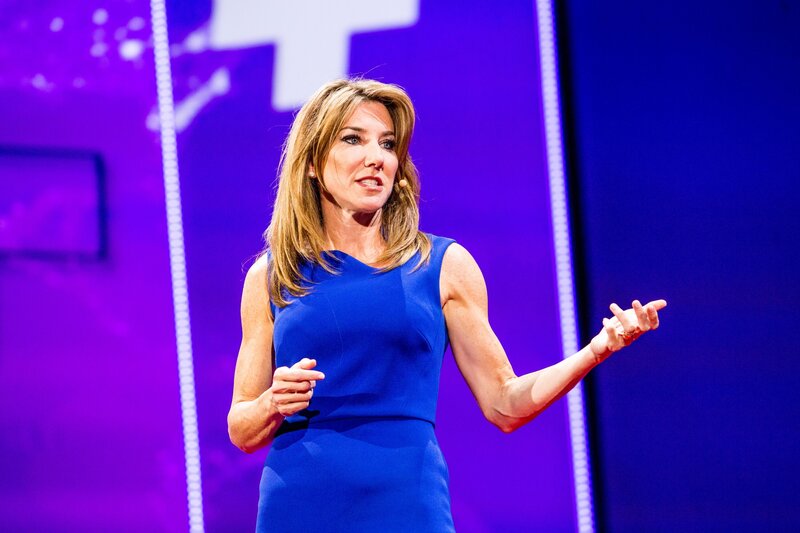



"Mike helped me create the signature keynote I'd been dreaming of giving. He was so skillful, artful, creative in helping me create a #mikedropmoment."




“He should have charged me 5x as much because the VALUE I received was so astounding!”
“Working with Mike made me more compelling, more motivational, more relatable, and more myself”
WORD ON THE STREET
— Erin King, Bestselling Author & Top-Ranked Keynote Speaker
— Tiffany Lanier, Change and wellbeing keynote speaker
— Laura Gassner Otting, bestselling author and TEDx speaker
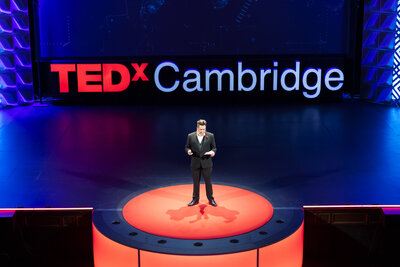

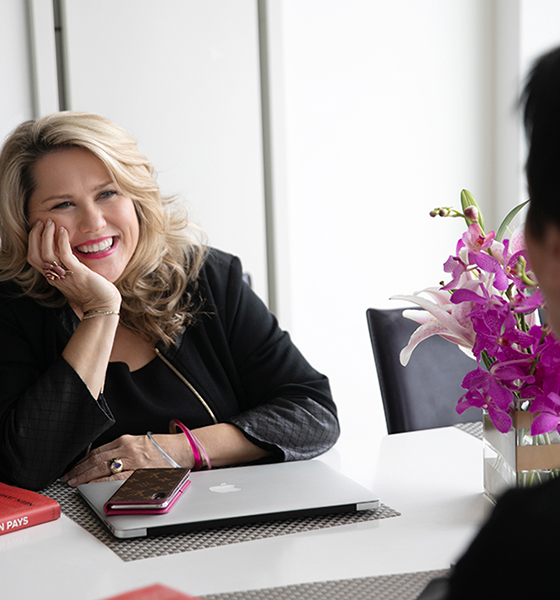


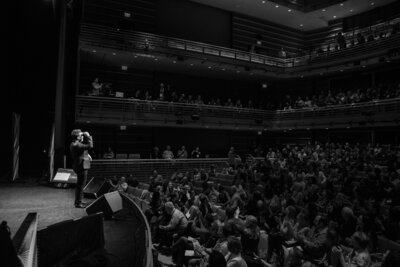

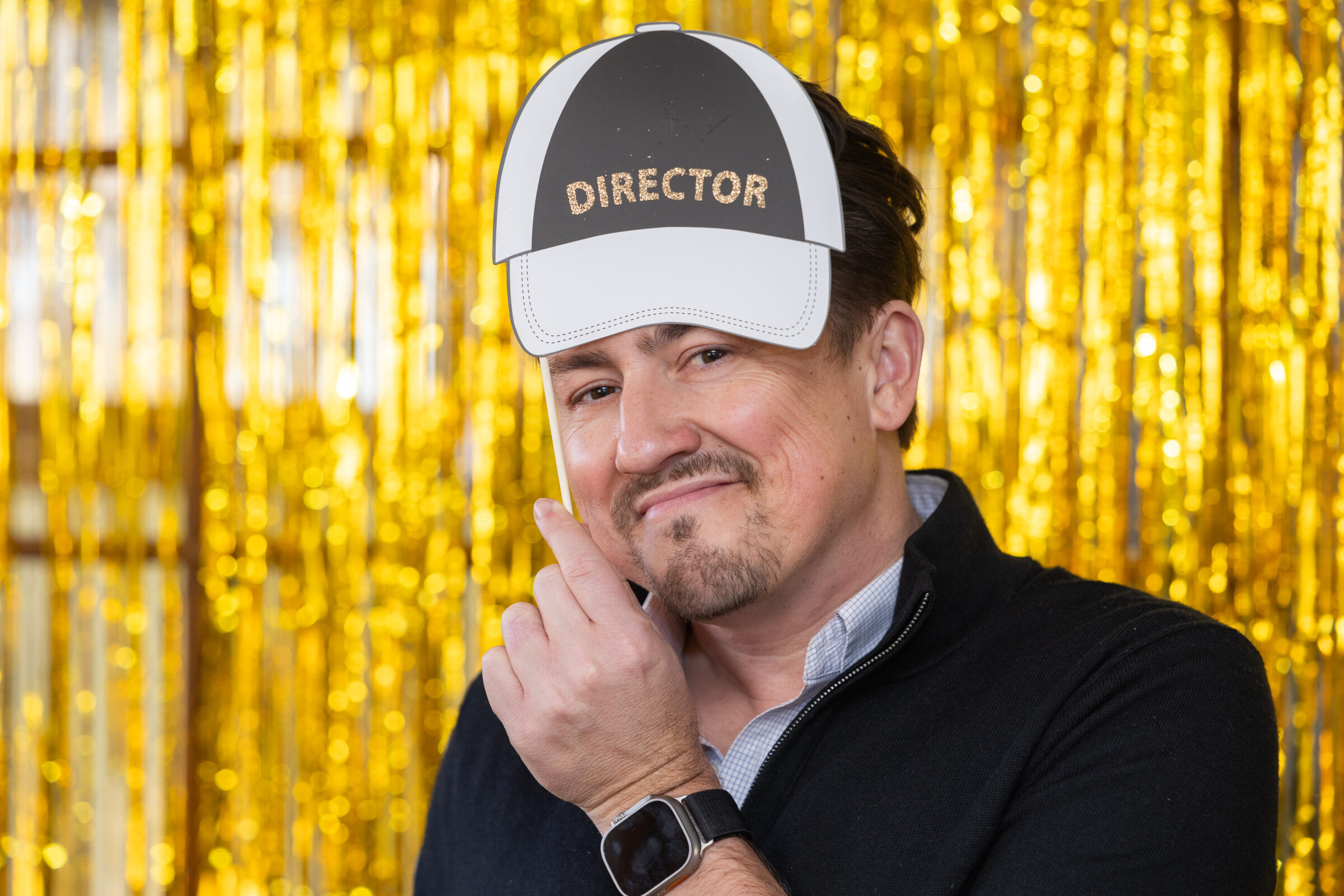
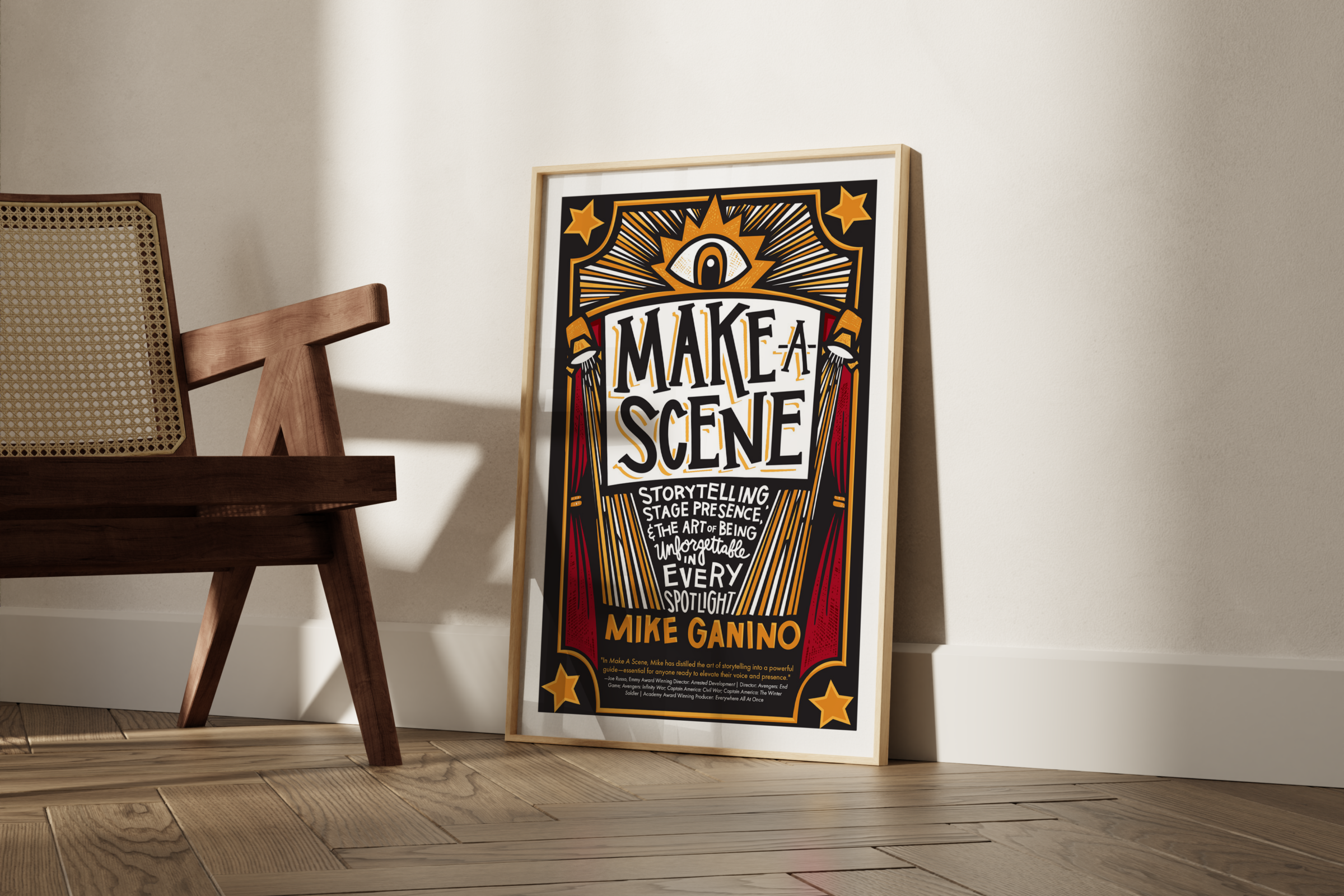
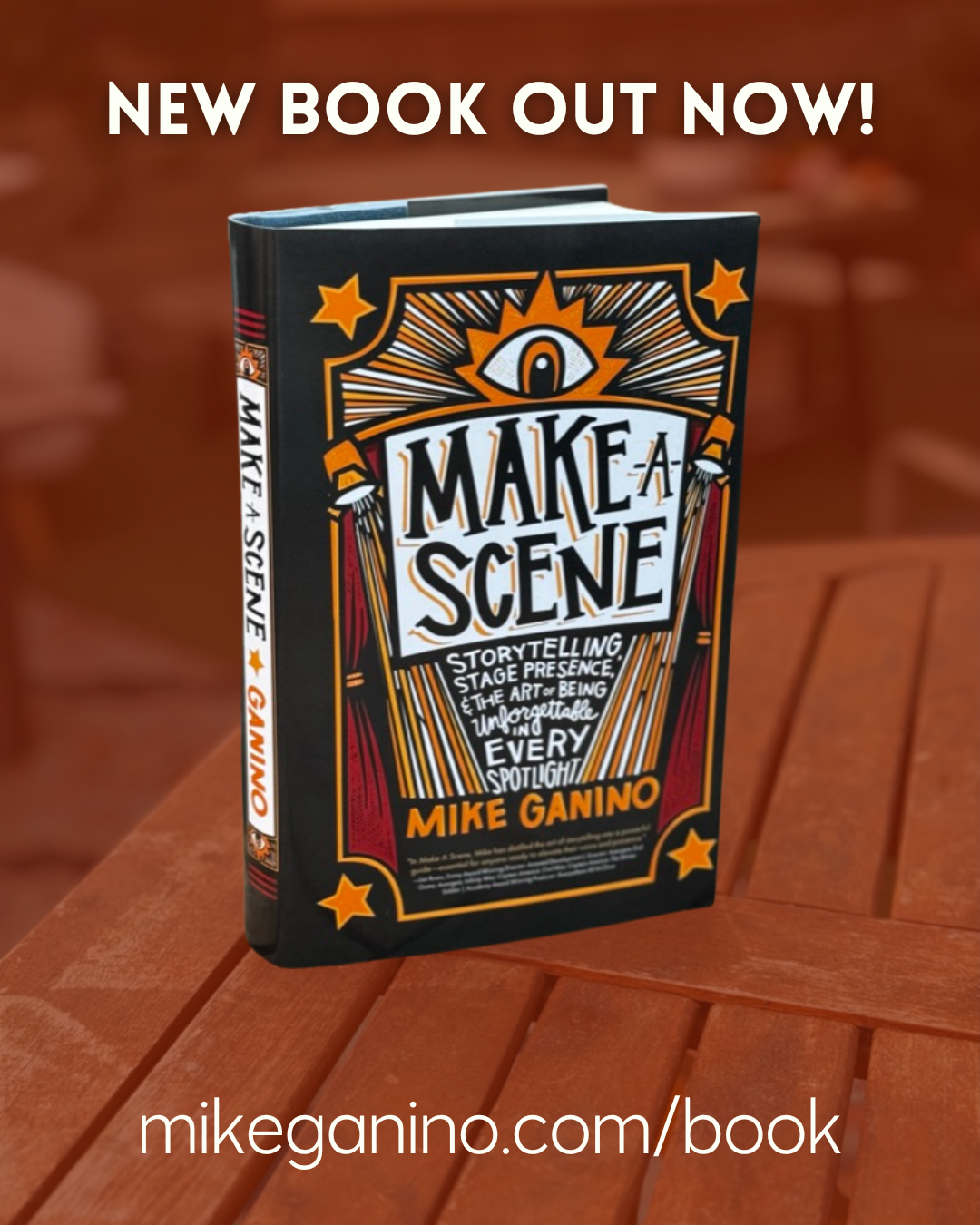
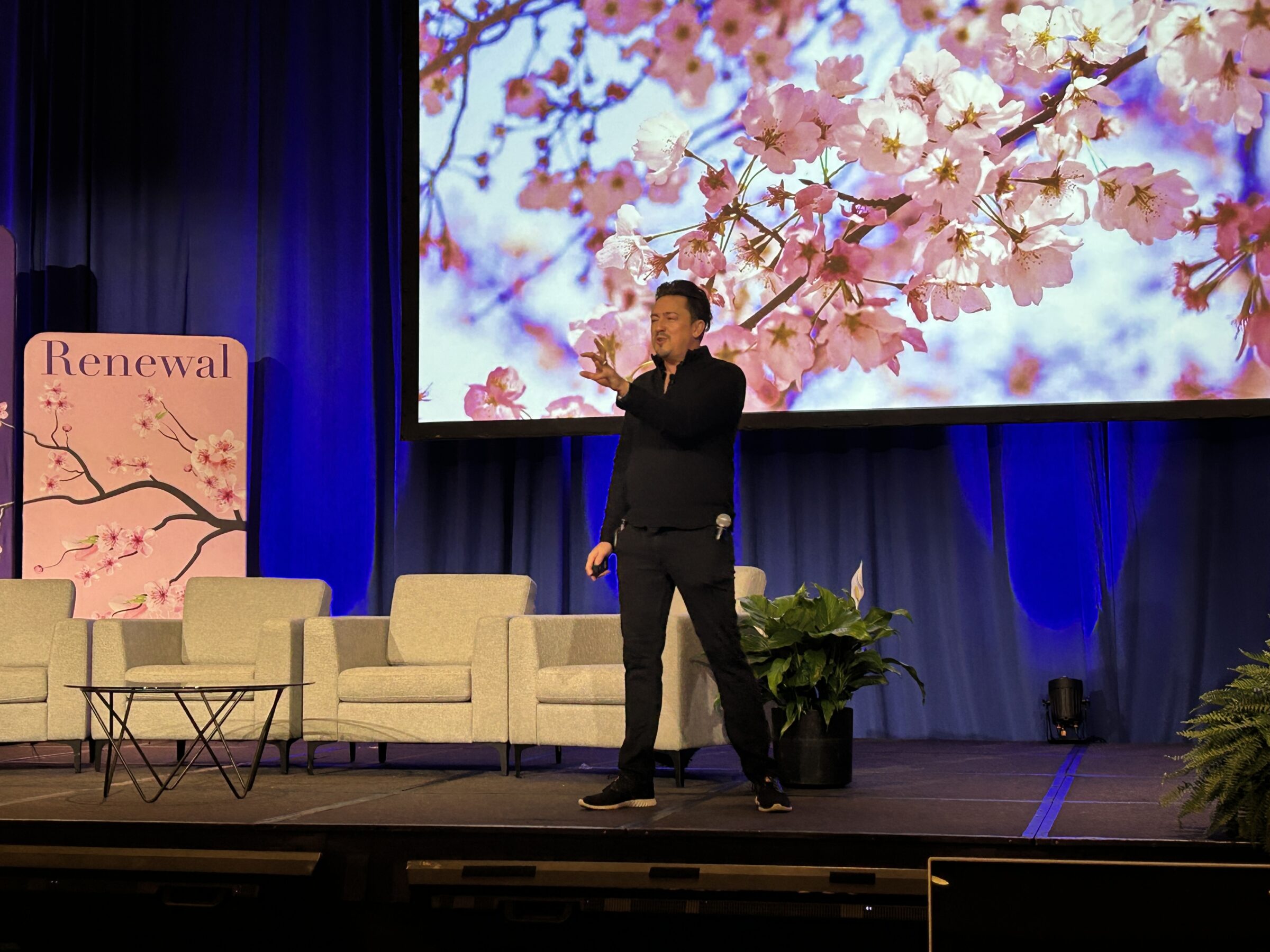
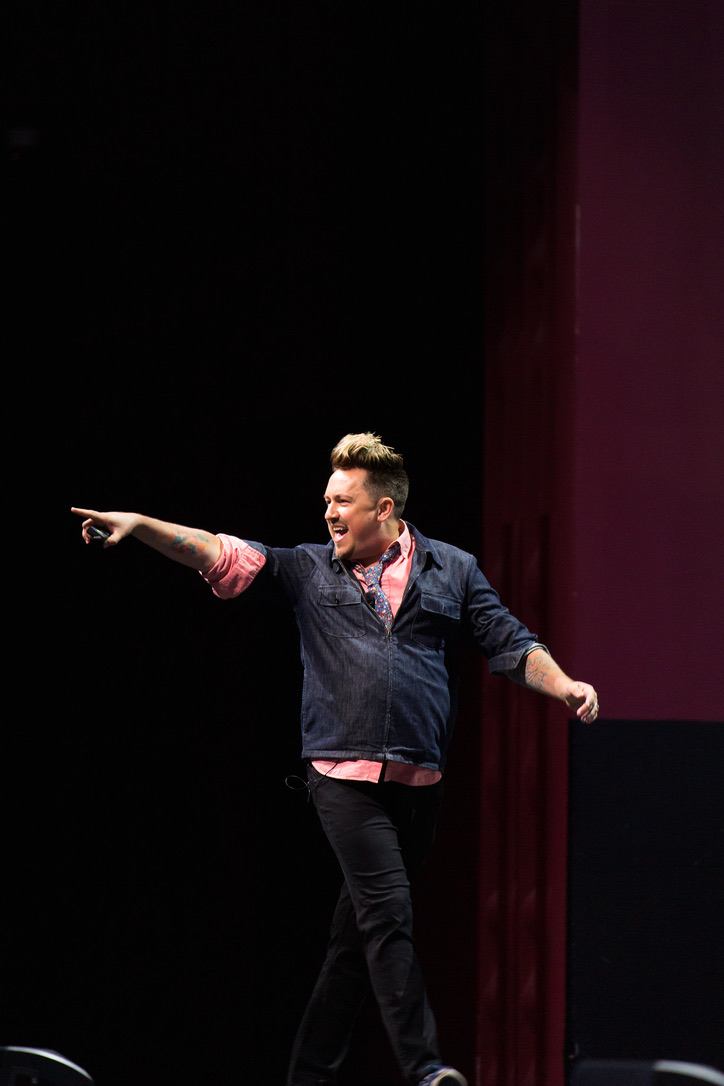



+ Show / Hide Comments
Share to: